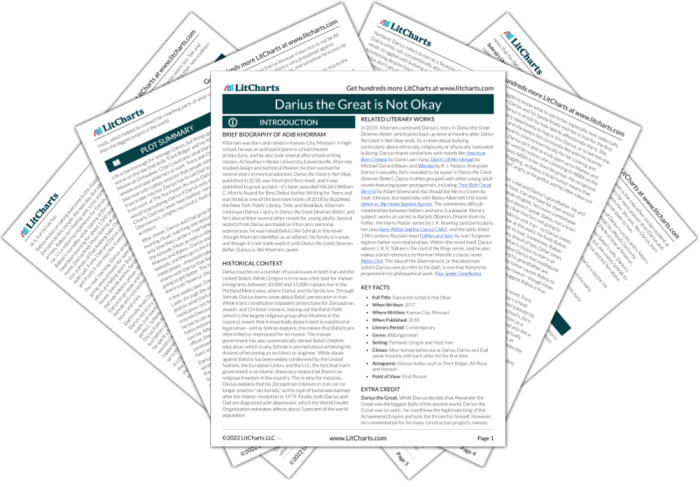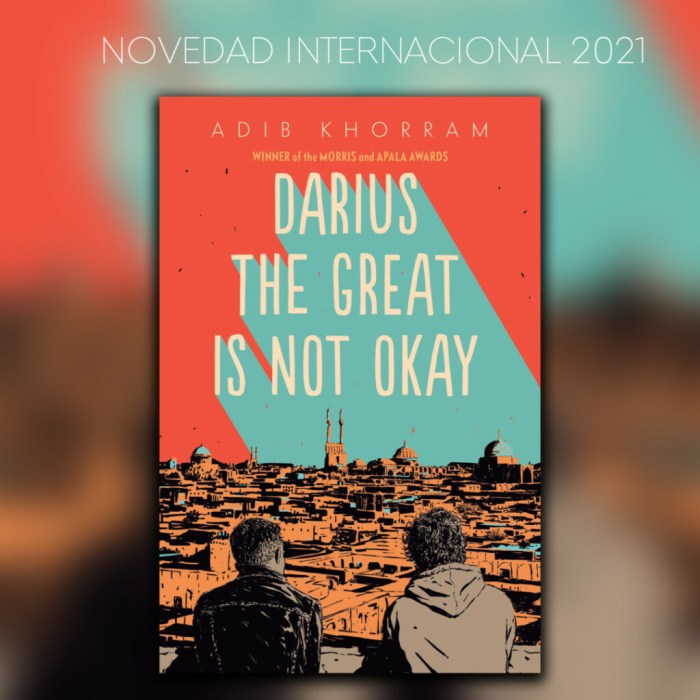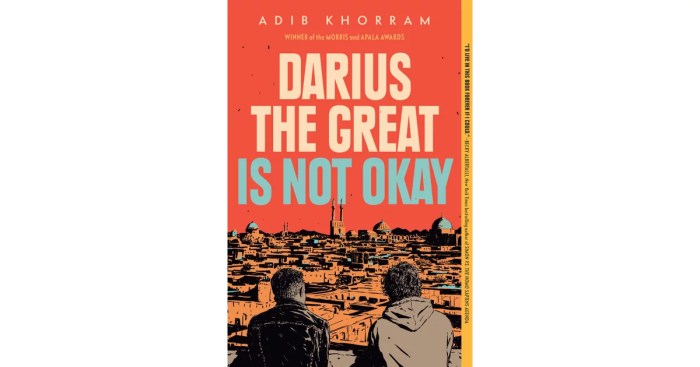Darius the Great is not okay sparknotes provides a comprehensive overview of the reign of one of the most influential rulers in Persian history. This engaging narrative delves into the complexities of his character, the strategies he employed to maintain control over his vast empire, and the impact of his religious policies and military campaigns.
Throughout his reign, Darius the Great demonstrated remarkable leadership qualities, including a keen sense of strategy, administrative prowess, and a commitment to religious tolerance. His legacy as a great ruler is undeniable, as evidenced by the enduring influence of his reforms and the respect accorded to him by both contemporaries and historians alike.
Darius the Great’s Reign

Darius I, known as Darius the Great, ascended to the throne of the Persian Empire in 522 BCE. His reign marked a period of significant expansion, administrative reforms, and cultural development.
Darius is credited with establishing the Achaemenid Empire, which stretched from the Indus River in the east to the Aegean Sea in the west. He achieved this through a series of successful military campaigns, including the conquest of Babylon and the Ionian Revolt.
To maintain control over his vast empire, Darius implemented a centralized administrative system. He divided the empire into satrapies, each governed by a satrap appointed by the king. Darius also established a system of taxation and a standardized system of weights and measures.
Darius the Great’s Character and Legacy
Darius the Great was known for his intelligence, administrative skills, and tolerance. He was a patron of the arts and promoted Zoroastrianism, the official religion of the Persian Empire.
Darius’s character and leadership style influenced his reign. He was a pragmatic and ambitious ruler who was committed to the stability and prosperity of his empire.
Darius the Great is considered one of the greatest rulers in Persian history. His legacy includes the establishment of a vast empire, the development of a centralized administrative system, and the promotion of Zoroastrianism.
Darius the Great’s Religious Policies
Darius the Great was a devout Zoroastrian. He promoted Zoroastrianism as the official religion of the Persian Empire, but he also tolerated other religions within his empire.
Darius’s religious policies contributed to the cultural diversity of the Persian Empire. He allowed different religious groups to practice their own beliefs, as long as they did not conflict with the laws of the empire.
Darius’s religious policies had a positive impact on Persian society. They fostered religious harmony and contributed to the cultural richness of the empire.
Darius the Great’s Military Campaigns
| Campaign | Outcome | Impact |
|---|---|---|
| Conquest of Babylon (522 BCE) | Victory | Establishment of the Achaemenid Empire |
| Ionian Revolt (499-494 BCE) | Victory | Suppression of Greek rebellion |
| Scythian Expedition (514 BCE) | Indecisive | Failed to conquer Scythia |
| Indian Campaign (518 BCE) | Victory | Expansion of the Persian Empire into India |
| Invasion of Greece (492-490 BCE) | Defeat | Failure to conquer Greece |
Darius the Great’s military campaigns were a major factor in the expansion and consolidation of the Persian Empire.
Darius the Great’s Administrative Reforms, Darius the great is not okay sparknotes
Darius the Great implemented a number of administrative reforms to improve the efficiency and stability of the Persian Empire.
- Divided the empire into satrapies
- Established a system of taxation
- Standardized weights and measures
- Created a system of royal roads
Darius’s administrative reforms contributed to the long-term success of the Persian Empire.
Question Bank: Darius The Great Is Not Okay Sparknotes
What were Darius the Great’s major accomplishments?
Darius the Great’s major accomplishments include the establishment of the Achaemenid Empire, the construction of the Royal Road, and the implementation of administrative reforms that reorganized the empire into satrapies.
What was Darius the Great’s leadership style?
Darius the Great was a skilled strategist and administrator who maintained control over his vast empire through a combination of military strength, administrative efficiency, and religious tolerance.
What was the impact of Darius the Great’s religious policies?
Darius the Great promoted Zoroastrianism as the official religion of the empire while tolerating other religions, which helped to maintain religious harmony and stability within the diverse population of the Persian Empire.


